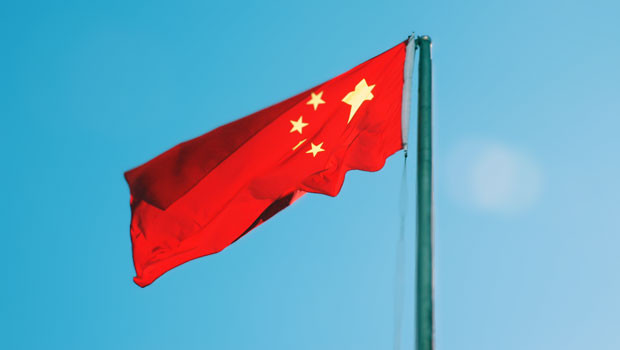Asia report: Markets mixed as world watches US election

Asia-Pacific markets showed a mixed performance on Wednesday as investors responded to Wall Street's overnight rally ahead of US presidential election results.
Patrick Munnelly at TickMill said the results indicated that Trump would emerge victorious, while the Republicans would maintain control of the Senate.
“The New York Times' closely-watched 'swingometer' projected a 93% chance of Trump winning, while Treasury yields rose to four-month highs as some betting sites significantly favoured him.
“However, the House of Representatives is still too close to call.
“Four years after departing the White House, Trump has advanced to the brink of a remarkable political revival by defeating Democrat Kamala Harris in the battleground states of North Carolina, Georgia and Pennsylvania.”
Munnelly noted that the euro, yen, and antipodean currencies experienced declines as a result of the 1.5% increase in the dollar index - the largest increase since March 2020.
“The dollar's sharp increase against the offshore yuan prompted reports that Chinese banks were selling dollars to slow the yuan's decline.
“China is perceived as being at the forefront of tariff risk, and its currency is currently trading at a high level of uncertainty, with implied volatility against the dollar circling record highs.
“As investors anticipate a meeting of top policymakers in Beijing this week to sanction local government debt refinancing and spending, Chinese markets have declined from an almost one-month high.”
Markets mixed as the world watches America
Japan's Nikkei 225 surged by 2.61% to close at 39,480.67, leading gains in the region, while the Topix index rose 1.94% to 2,715.92.
The gains in Tokyo were driven by strong performances from IHI Corporation, which jumped 19.28%, along with NTT Data and Mitsubishi Heavy Industries, gaining 13.77% and 9.85%, respectively.
The Bank of Japan's September monetary policy meeting minutes indicated consensus on the potential for rate hikes, provided economic and inflation targets are met.
In contrast, Chinese markets edged lower, with the Shanghai Composite dipping 0.09% to 3,383.81 and the Shenzhen Component falling 0.35% to 10,968.14.
Major decliners included Shuangliang Eco-Energy Systems and Guangdong Songfa Ceramics, which both shed close to 10%.
Hong Kong’s Hang Seng Index saw a significant drop of 2.23%, closing at 20,538.38.
Declines were led by Shenzhou International Group, Xinyi Solar Holdings, and Lenovo Group, which fell by 5.6%, 5.43%, and 4.58%, respectively.
South Korea’s Kospi 100 also declined, down 0.29% at 2,566.54, with key names like SKC, Posco Future M, and Hanwha Solutions seeing steep losses, each falling more than 8%.
Australia’s S&P/ASX 200 managed a gain of 0.83% to close at 8,199.50, bolstered by Neuren Pharmaceuticals, Zip Co, and Bluescope Steel.
New Zealand’s S&P/NZX 50, however, slipped by 0.07% to 12,649.17, with China-exposed stocks like Synlait Milk and A2 Milk Company among the top losers.
In currency markets, the dollar was last up 1.55% on the yen to trade at JPY 153.97, while it gained 0.82% against the Aussie to AUD 1.5189, and advanced 0.65% on the Kiwi, changing hands at NZD 1.6758.
Oil prices also declined, with Brent crude futures last down 1.19% on ICE to $74.63 per barrel, and the NYMEX quote for West Texas Intermediate losing 1.17% to $71.15.
Bank of Japan minded to hike rates, NZ unemployment rises less than expected
In economic news, the Bank of Japan released minutes from its September policy meeting on Wednesday, revealing a consensus among members on the potential for interest rate hikes if economic and inflation targets aligned with projections.
The central bank anticipated the economy to grow above its potential rate, and had maintained a 2% inflation target.
Despite keeping interest rates steady at 0.25% in September, policymakers noted that economic activity in Japan largely aligned with their July outlook, bolstered by ongoing wage increases and steady consumer spending.
In New Zealand, unemployment rose in the third quarter but remained slightly below analysts’ predictions.
Statistics New Zealand reported an unemployment rate of 4.8% for the September quarter, just below the 5% forecast by Reuters-polled economists.
That marked an increase from 4.6% in the prior quarter, while job growth contracted by 0.5%, slightly more than the anticipated 0.4% decline.
Meanwhile, US Treasury yields surged Tuesday evening as early election returns led traders to speculate on a possible edge for former President Donald Trump.
The 10-year Treasury yield climbed by 16 basis points to 4.44%, the highest since early July, while the two-year yield increased by 10 basis points to 4.30%.
Markets anticipated that a Republican win, particularly one securing both the White House and Congress, could prompt fiscal policies like tax cuts and tariffs, potentially widening the deficit and stoking inflation.
Reporting by Josh White for Sharecast.com.